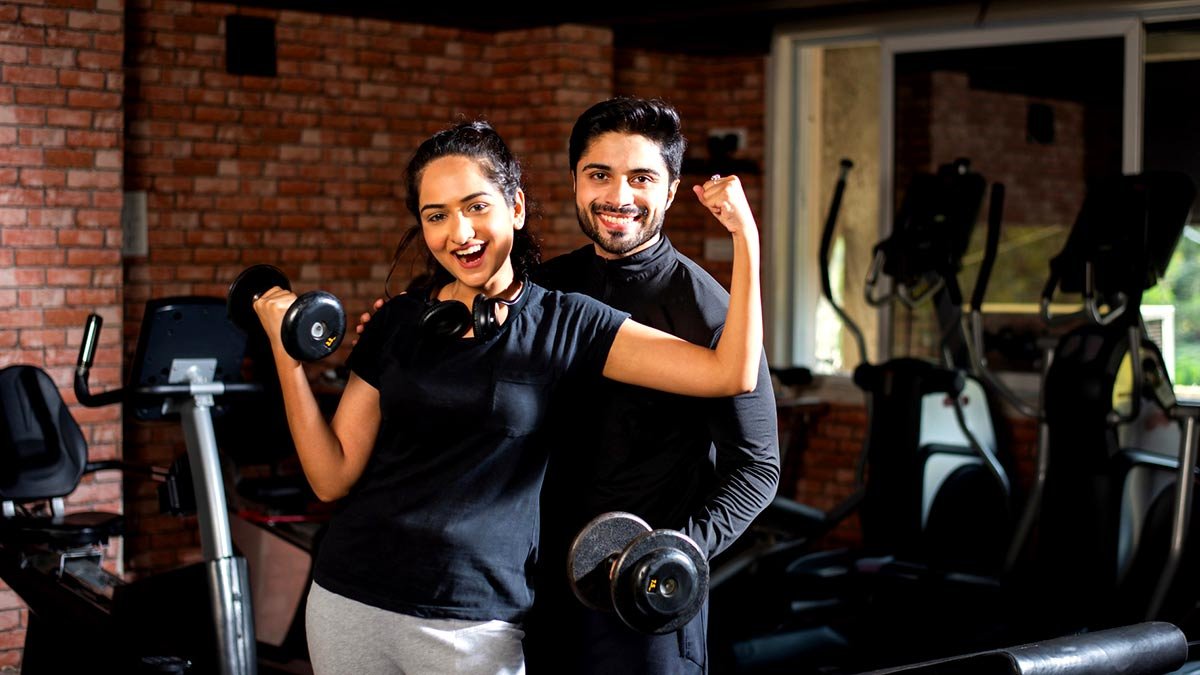The Power of Mini Workouts and Their Positive Impact on Students Health
In the modern age students frequently find themselves caught in a storm of academic stress, screen time, and hectic schedules. Their lives are centered around laptops, smartphones, and textbooks. Students spend hours in libraries, classrooms, and dorm rooms doing their complex nursing papers and tasks. Sitting for long periods of time adds to a sedentary way of life. Sadly, there may be health risks associated with this lifestyle of inactivity. This lack of mobility harms students’ physical, emotional, and intellectual well-being.
But what if there was some straightforward fix, some methods to fit exercise into hectic schedules without wasting time or causing unnecessary stress? Yes these are “mini workouts”—brief minutes of physical activity incorporated into a student’s schedule.
The accessibility and ease of use of micro workouts are what make them so appealing. Mini workouts can be done in breaks, in between classes, or even before or after studying. They are in contrast to typical workouts that demand focused time and effort.
Bodyweight exercises, brief intervals of high-intensity interval training (HIIT), or even active gaming sessions can all be used as efficient mini-workouts without the need for expensive equipment or gym memberships. Because of their brief duration, they are less daunting and instead inspire a sense of success rather than fear, which may improve commitment and enjoyment in general.
Micro workouts offer advantages that go well beyond affordability. Studies indicate that even a minimum amount of physical activity can have a significant effect on a range of student health issues. Now let’s get into the details:
What is the Impact of Sedentary Lifestyle on Students?
Sedentary lifestyle defined as extended periods of sitting or minimal physical exercise. It is worrisomely common among students all across the world. According to recent studies roughly 80% of teenagers are not physically active enough. This inactive way of living has an impact on the performance of students.
1.Physical Health:
- Obesity: Weight gain and obesity are caused by sedentary lifestyles. A mismatch between calorie intake and expenditure results from inactivity, which lowers energy expenditure.
- Musculoskeletal Problems: Extended sitting puts stress on the spine, joints, and muscles. Musculoskeletal diseases, stiffness, and back discomfort can be caused by poor posture and inactivity.
- Chronic Illnesses: Being sedentary raises your risk of developing long-term illnesses like hypertension, type 2 diabetes, and cardiovascular disease. These health problems may not go away as an adult.
2.Mental Health:
- Anxiety and despair: Students who have sedentary lifestyles may be more vulnerable to anxiety and despair. Endorphins are released when we exercise, and this has a good effect on our mood and mental health.
- Sleep Disorders: One typical sedentary behavior that throws off sleep cycles is excessive screen time. Concentration, memory, and general emotional well-being are all impacted by irregular sleep. Glútem
The Impact of Mini Workouts on Students Performance
Mini workouts, sometimes referred to as micro-workouts or quick bursts of exercise. They are quick spurts of physical activity that are beneficial and easy to incorporate into your daily schedule. Mini workouts prioritize convenience, effectiveness, and intensity over longer, more conventional workouts. Let’s check their special benefits for students:
4 Reasons Short Workouts are better than traditional exercise :
- Time management: Students frequently juggle their hectic schedules of courses, homework, and extracurricular activities. Because mini workouts only require a few minutes, they are a useful option. You can obtain comparable results in a shorter period of time if you workout instead of spending an hour sitting idle.
- Accessibility: Little exercises require little room and equipment. You don’t need special equipment to practice. You can do bodyweight workouts in a dorm room, library, or campus park. No requirement for a fully furnished gym!
- Variety: Consistent exercise suffers from boredom. With little workouts, you can vary things up. You can experiment with new exercises to keep your fitness program interesting, such as yoga stretches and high-intensity interval training.
- Positive Perception: For newcomers especially, lengthy workouts may seem intimidating. Mini workouts are more doable and less daunting. They instill a favorable atmosphere with exercise, turning it into a fun activity instead of a burdensome one.
Types of Student-Friendly Mini Workouts
Exercises using bodyweight:
- Jumping jacks: Increase heart rate and work various muscular areas.
- Squats: Without using any equipment, strengthen your lower body (quads, hamstrings, and glutes).
- Lunges: Boost your leg strength, stability, and balance.
- Press-Ups: Work the triceps, shoulders, and chest.
Short bursts of high-intensity interval training (HIIT):
Switch between quick bursts of high-intensity exercise (such sprinting in place) and short rest intervals. HIIT increases heart rate endurance and effectively burns calories.
Virtual fitness programs and interactive gaming:
An enjoyable method to move is through dancing-based video games or online exercise courses. You may work up a sweat dancing and grooving in your own space!
Quick Dance Fitness, Pilates, or Yoga Bouts:
- Flexibility, balance, and relaxation are all improved by yoga poses.
- Pilates emphasizes stability and strength in the core.
- Cardio and rhythmic movements are combined to create dance fitness.
Best Ways to Integrate Mini Workouts in Daily Routine
Strategic Time Management:
- Take a little workout during the gaps in between classes.
- Incorporate quick workouts into your study breaks.
- Initiate or conclude your day with a little workout.
Make sensible objectives:
- Increase length and intensity gradually.
- Build up to five to ten minutes at first.
- Strive for consistency as opposed to perfection.
Make use of technology
- Get fitness applications to perform guided short workouts.
- Follow your development and maintain your drive.
4 Proven Benefits of Mini Workouts on Students
Physical Health
- Improved Cardiorespiratory Fitness and Strength: Mini workouts, even in their brief duration, contribute to better cardiovascular health and overall strength. Regular movement enhances heart and lung function.
- Reduced Risk of Obesity, Chronic Diseases, and Musculoskeletal Issues: By breaking the sedimentary cycle, students decrease their openness to obesity, diabetes, and other chronic conditions. Additionally, mini workouts promote joint flexibility and prevent musculoskeletal problems.
- Enhanced Energy Levels and Sleep Quality: Physical activity stimulates endorphin release, leading to increased energy levels. Better sleep quality is an added bonus, as exercise positively impacts sleep patterns.
Mental Health
- Decreased Stress, Anxiety, and Depression Symptoms: Mini workouts act as stress busters. The release of neurotransmitters during exercise helps alleviate anxiety and depression.
- Improved Mood, Self-Esteem, and Body Image: Feeling good about oneself is crucial for mental well-being. Mini workouts boost self-esteem and foster a positive body image.
- Enhanced Cognitive Function and Focus: Exercise enhances blood flow to the brain, improving cognitive abilities, memory, and concentration.
Academic Performance
- Increased Alertness, Attention Span, and Memory: Physical activity primes the brain for learning. Students who engage in mini workouts experience better focus during classes, they learn to write better and retain information effectively.
- Improved Time Management Skills and Productivity: Allocating time for mini workouts teaches students valuable time management skills. It’s a win-win: improved health and better productivity.
- Reduced Academic Stress and Burnout: Regular exercise helps manage stress levels, preventing burnout. Students who incorporate mini workouts find themselves better equipped to handle academic pressures.
Overall Well-being
- Increased Confidence and Self-Efficacy: Achieving fitness goals, no matter how small, boosts confidence. Students become more self-assured in various aspects of life.
- Improved Social Interaction and Participation: Group mini workouts foster social connections. Whether it’s a workout buddy or a virtual fitness class, students engage with others.
- Encouragement of Healthy Lifestyle Habits: Mini workouts lay the foundation for lifelong fitness habits. Students learn that health is a priority, not an afterthought.
How to Overcome the Challenges of Mini Workouts
Acknowledging Potential Challenges
- Lack of Motivation: Staying motivated can be tough. Encourage students to set realistic goals and find motivation.
- Time Constraints: Busy schedules often hinder workout plans. Suggest incorporating mini workouts during breaks or using short intervals throughout the day.
- Access to Resources: Not everyone has access to gyms or equipment. Highlight the simplicity of bodyweight exercises and outdoor spaces.
Strategies for Sustainability
- Group Workout: Encourage students to team up with friends. Accountability and good fellowship make workouts enjoyable.
- Setting Reminders: Use phone alarms or calendar notifications to prompt mini workout sessions.
- Utilizing Free Outdoor Spaces: Parks, courtyards, and open areas provide excellent workout spots.
Emphasizing Long-Term Sustainability
- Gradual Progress: Remind students that consistency matters more than intensity. Small steps lead to lasting results.
- Exploring Different Workouts: Variety prevents monotony. Encourage students to try different mini workouts to find what resonates with them.
- Focus on Positive Impact: Remind students that every mini workout contributes to their overall health and well-being.
Conclusion
So, mini workouts are a very smart and easy solution for improving student health. These bite-sized healthy fitness routines offer immense benefits without disrupting busy schedules. Let’s support and promote mini workouts and encourage everyone in college or universities. A healthy mind is essential for overall well-being and academic success.







